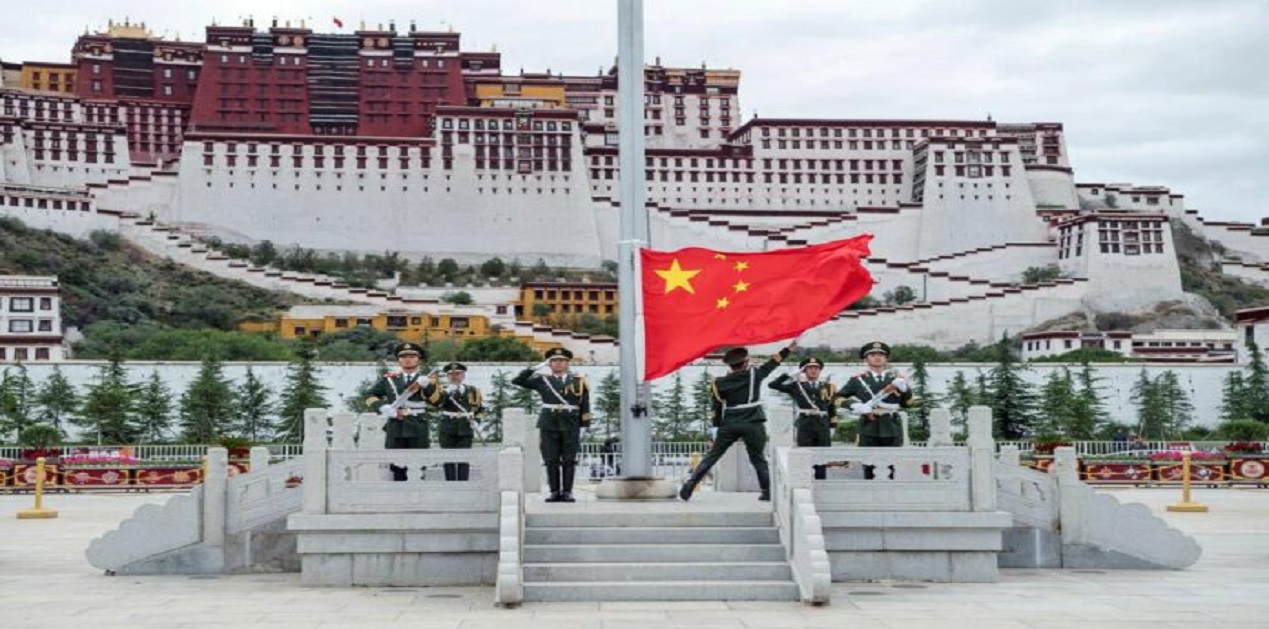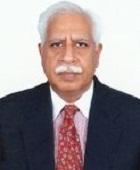Tibet appears poised to initiate a vigorous campaign aimed at assimilating the Tibetan ethnic minority into the Han national mainstream. An important speech by Tibet Autonomous Region (TAR) Party Secretary Wu Yingjie, at a meeting of the District Party Committee Ideology and Propaganda and Ideological Work Leading Group in Lhasa on June 21, signals that such a campaign is imminent.
TAR Party Secretary Wu Yingjie’s speech at the meeting in Lhasa on June 21, during which he mentioned Xi Jinping twelve times, was reported in detail by the official Tibet Daily the following day. The 1772-word Tibet Daily report disclosed that the meeting was attended by Liu Jiang, District Party Committee Executive Deputy Secretary, District Party Committee Ideology and Propaganda and Ideological Work Leading Group Deputy Leader, District Party Committee Standing Committee, Secretary-General, District Party Committee Ideology and Propaganda and Ideological Work Leading Group Deputy Leader and many other such local officials.
At the outset Wu Yingjie emphasised that “ideology and propaganda and ideological work is an extremely important work of the party” and that Xi Jinping’s series of important speeches on ideology, propaganda and ideological work had “provided us with unswervingly doing ideological work in the new era” as well as a guiding ideology to follow. He emphasised that ideology and propaganda and ideological work provide a strong ideological guarantee and a strong spiritual force for the long-term stability and high-quality development of “Tibet in the new era”.
Assuring that “Xi Jinping’s new era of socialism with Chinese characteristics is deeply integrated into the blood of cadres of all ethnic groups”, Wu Yingjie elaborated that “masses of all ethnic groups feel the party, the determination to listen to the party and follow the party is firmer, the ideological foundation for opposing split is firmer, the Chinese nation’s sense of community is further strengthened”.
Particularly significant is Wu Yingjie’s assertion that “the religious masses have begun to transform from "pursuing the afterlife" to "living well in this life". This implies that the huge sums poured into Tibet’s development and the consequent material benefits are beginning to have the desired outcome. It indicates that the older generation of Tibetans and particularly rural nomads have begun to accept the benefits. Use of this phrase by Wu Yingjie is intended to suggest that the hitherto unwavering belief of Tibetans in Tibetan Buddhism and especially the Dalai Lama is beginning to weaken. Earlier on February 8, 2021, the Head of the Chinese Communist Party (CCP)’s United Front Work Department (UFWD) You Quan, while meeting the Panchen Lama, had claimed that the ‘sinicization of Tibetan Buddhism has made new achievements inpromoting the adaptation of Tibetan Buddhism to a socialist society’.
Wu Yingjie declared that “important discourses on Tibet work are combined with the party’s strategy for governing Tibet in the new era”. He said it is imperative to combine the spirit of the eighth and ninth plenary sessions of the Ninth Party Committee of the District Party Committee with the actual working conditions in Tibet, to “Achieve integration, brain and heart”.
Pointing to the work ahead to “educate and guide” the masses, he urged the “study and education of party history, deepen educational activities such as "Four Stresses and Four Loves", "Follow the Four Standards, Strive to Be Advanced Monks and Nuns" and the need to publicise the party with Comrade Xi Jinping at its core. Declaring that the Party attaches “great importance to Tibet’s work and special care for the Tibetan people”, cadres were exhorted to “further strengthen the confidence and determination of the people of all ethnic groups to appreciate the party’s favour, listen to the party, and follow the party, vigorously promote the core socialist values, take a clear-cut stand to eliminate the negative influence of the 14th Dalai Lama’s use of religion, and educate and guide the masses to treat religion rationally.” He emphasised the importance of downplaying “the negative influence of religion”.
Wu Yingjie did not hesitate to touch on the subject of adapting Tibetan culture to that of the Han. He said it is necessary to “encourage "new wine in old bottles", and actively inject new era connotations into Tibetan traditional art forms such as Tibetan opera, Langma, and Duixie, and promote the creative transformation and innovation of Chinese excellent traditional culture development, so that traditional culture can better integrate into modern life”. This effort is to be extended to agricultural and pastoral areas. The objective is to “guide people of all ethnic groups to integrate into modern civilized life” and oppose and resist feudal superstitions and stereotypes. He made no specific mention of the plans to replace Tibetan with Mandarin (Putonghua) as the primary language in ethnic Tibetan schools.
He emphasised the importance of the Chinese nation's community. He said the people of all ethnic groups must “understand the long history and splendid culture of the Chinese nation, and deeply realize that Tibet has been an inalienable part of the great motherland since ancient times. Tibetan culture is an important part of Chinese culture”. Wu Yingjie pointed out that “culture has always become the emotional bond and spiritual belonging of all ethnic groups in Tibet” and has strengthened “a clear-cut stand against division, and consciously safeguarding the unity of the motherland and ethnic unity.” Wu Yingjie asserted the importance of consolidating Marxism in Tibet and in its philosophy, social sciences and theoretical questions on stability and development.
Wu Yingjie also focussed on the students. Noticeably avoiding mention of a ‘colour revolution’, he said it is essential “to work hard to effectively prevent and resolve hidden risks” and be highly vigilant against not only the "black swan" incident, but also the "gray rhino" incident. He referred to enhancing supervision of the network media such as short videos and webcasts. But he did emphasise the need to “continuously improve the ideological risk prevention and control mechanism of colleges and universities” and “do in-depth and practical ideological and political work for young students”.
It is significant that Wu Yingjie’s speech includes certain features of an interview published in June 2013. Professor Jin Wei, a senior faculty member of the Central Party School in Beijing had given an interview to the Hongkong-based magazine Yazhou Zhoukan (Asia Week) in June 2013. In that interview, which created a stir including within the CCP’s senior echelons, Professor Jin Wei was categoric that the reincarnation of the XIVth Dalai Lama must be found inside China and that China must “at all costs avoid a situation of two Dalai Lamas like that of the two Panchen Lamas”. She had stated that Tibetan Buddhism is important to the Tibetans who revere the Dalai Lama as a God. Wu Yingjie noticeably sidestepped any derogatory reference to the Dalai Lama in his speech.
Wu Yingjie’s assertion that “the religious masses have begun to transform from "pursuing the afterlife" to "living well in this life" also echoes Professor Jin Wei’s remarks in 2013. She had said the Chinese leadership needs to: “Untangle religion and politics; carefully judge the psychological needs of the Tibetan people. Tibetan people have been influenced by religion for thousands of years, forming a ‘heavily spiritual and light on materialism, heavy on the next life and light on this life’ national identity. This is a huge difference with the main nationality of China, the Han. As the ruling Communist Party of China, it is necessary to understand this clearly.”
The CCP’s efforts to motivate the monks and nuns to adapt Tibetan Buddhism to socialism with Chinese characteristics and inculcate “gratitude” and “love” for the Party has been underway for some years, but picked up since the Seventh Tibet Work Forum in August 2020. Major monasteries like Nyima Ling in Nagchu and Tashi Lhunpo in Shigatse were among those who soon after the Seventh Tibet Work Forum organised ‘study sessions’ for monks and nuns. The National People’s Congress (NPC) Plenum that concluded on March 11, 2021, provided further impetus to these efforts. Teams from the TAR Party Committee and government have been regularly visiting the monasteries in TAR to “educate” monks and nuns and meet the Monastery management committees. Monks and nuns who conform to the CCP’s instructions are conferred the title “model”.
Gyaltsen Norbu, the Chinese appointed Panchen Lama, has been roped into these efforts. He visited Tibet from July to September 2020 when he travelled to 25 counties and 33 monasteries and for the first time visited Ngari (Ali), Nyingchi and Yadong. In the course of a seminar in Lhasa, he asked monks, nuns and heads of the religious sects, to accept and listen to the leadership of the party, and to “adhere to guidelines to Sinicize Tibetan Buddhism and contribute to long-term stability”. This was his longest ever stay in Tibet.
At a press conference on May 11, 2021, the Gyaltsen Norbu criticised “anti-China forces” for using Tibet and Tibetan Buddhism to “attack China’s ethnic andreligious policies”. He added that “Foreign anti-China forces”, specifically referring to USA, are “not truly concerned about the Tibetan people nor about Tibetan Buddhism but are using Tibet-related matters for their vested interest”.
China is simultaneously trying to project to the world the development that has taken place in TAR. Coinciding with the hundredth anniversary of the founding of the CCP, China’s Ministry of Foreign Affairs is organising a Global Promotional Event on Tibet.
An intensified campaign to adapt Tibetan Buddhism to ‘socialism with Chinese characteristics’, replace Tibetan with Putonghua as the primary language in ethnic Tibetan schools and mould Tibetan culture and history to suit that of the dominant Han, will undoubtedly enhance resentment among the Tibetans. TAR Chairman Che Dalha, in a lengthy article in the People’s Daily (March 25, 2021), has already hinted at a possible demographic change by calling entrepreneurs from other parts of China to set up businesses in TAR and urging Tibetan businessmen to go to the Mainland. The campaign is part of Xi Jinping’s directive, published by the UFWD in January 2021, which asserts that the Han and ethnic minorities are part of a “common community with a common destiny”. Similar efforts being made in the autonomous regions of Inner Mongolia, Gansu and Ningxia Hui have triggered protests and demonstrations. At the same time, noticeable in Wu Yingjie’s speech is the stress on preventing “splittism” and opposing the forces of the XIVth Dalai Lama, which confirm that the Dalai Lama’s influence among Tibetans inside China remains strong. While TAR has thus far been peaceful, the new measures could see protests in TAR too.
(The paper is the author’s individual scholastic articulation. The author certifies that the article/paper is original in content, unpublished and it has not been submitted for publication/web upload elsewhere, and that the facts and figures quoted are duly referenced, as needed, and are believed to be correct). (The paper does not necessarily represent the organisational stance... More >>
Image Source: https://www.tibetanreview.net/china-announces-15-bans-to-strengthen-border-security-ahead-of-70th-tibet-annexation-celebrations/











Post new comment